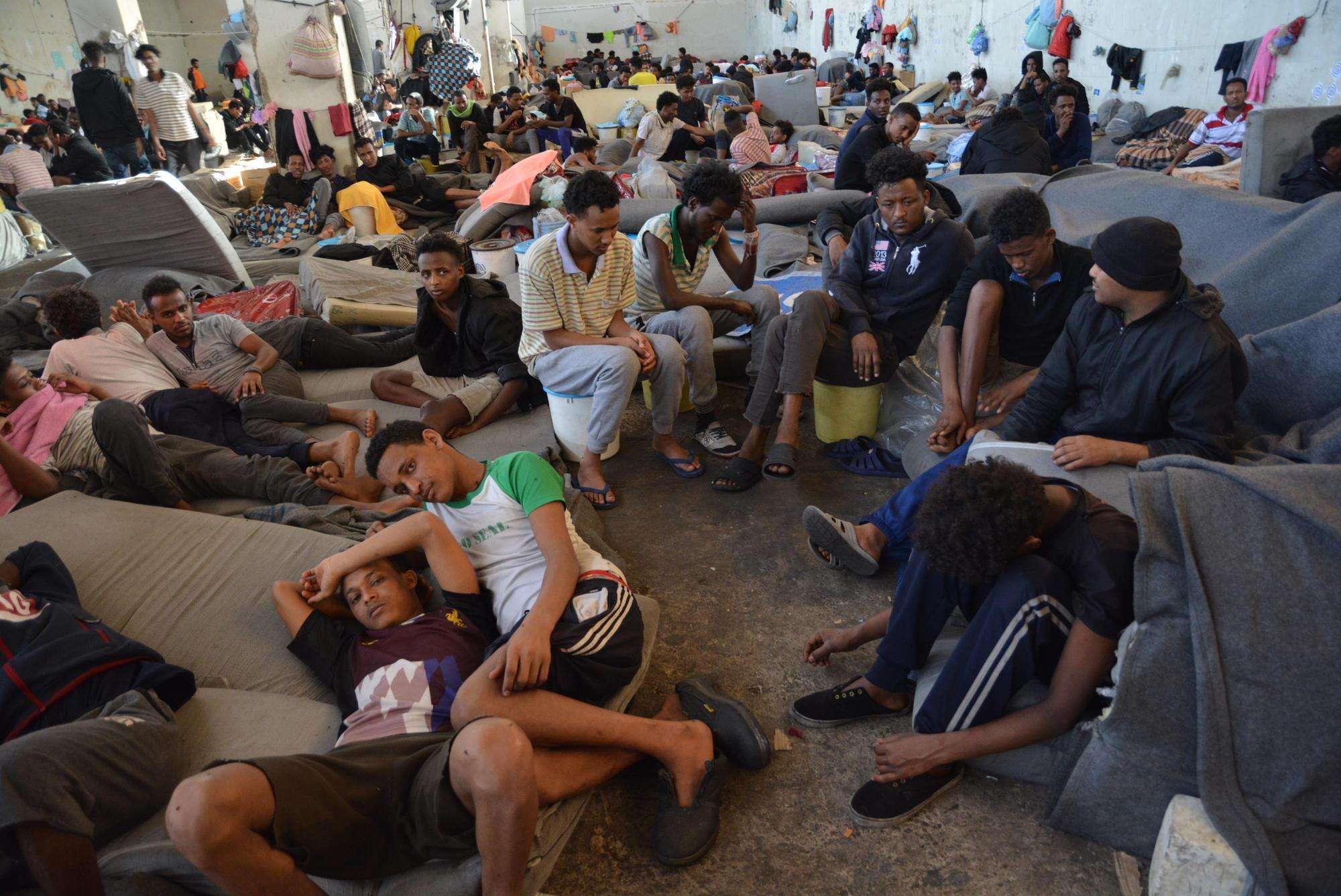NEW YORK/PARIS—Following the closing of a detention center in Misrata, Libya, refugees and migrants have been moved to other detention facilities in the country, where they are exposed to increasingly inhumane and dangerous conditions, the international medical humanitarian organization Doctors Without Borders/Médecins Sans Frontières (MSF) said today.
On October 14, Libyan authorities closed the Karareem detention center in Misrata, in the central coastal region of Libya, and transferred more than 100 refugees and migrants to two other detention centers in the same region, Zliten and Suq Al Khamis.
The conditions in these two centers are known by Libyan authorities and the UN refugee agency UNHCR to be extremely dangerous, as reported by MSF teams on several occasions. Refugees and migrants are detained indefinitely, without any safeguards, and are subjected to abuses, violence, exploitation, and forced disappearances.
These men, women, and children, including survivors of torture and human trafficking in Libya, have already been arbitrarily detained for months or years, with little access to food, water, and open air. They are now exposed to conditions that are as bad or worse than before. Preventable yet deadly diseases such as tuberculosis continue to spread in these unhygienic conditions.
"Closing one detention center would be a positive step if refugees and migrants were provided freedom of movement, protection, and assistance," said Sacha Petiot, MSF head of mission in Libya. "But here, they are moved from one detention center to another, seeing conditions go from bad to worse in an endless cycle of despair and violence. At the bare minimum, they should have been released and taken care of in a safer environment."
The armed conflict that started in April around Tripoli has made the situation more dangerous for the refugees and migrants detained in the areas where clashes occur. In this grim context, the tragic death of an estimated 60 people during an airstrike on Tajoura detention center on July 2 prompted renewed calls for the closure of Libya's detention centers, including by Libyan authorities.
There are currently no safe locations in Libya where refugees and migrants can find protection and assistance. The only facility managed by UNHCR in Libya, the Gathering and Departure Facility in Tripoli, is now full, and UNHCR has claimed that it cannot accommodate more vulnerable people.
"We need more lifesaving evacuations outside Libya, and it is urgent to develop an alternative to detention, such as setting up shelters to provide immediate, temporary protection in Libya," Petiot said. "Otherwise, the most vulnerable refugees and migrants are condemned to endless detention and exposed to major threats and suffering."
Since 2016, MSF has worked to alleviate the suffering of arbitrarily detained refugees, asylum seekers, and migrants and to expose the inhumane conditions inside Libyan detention centers. MSF teams provide both general and psychological health care services, in addition to emergency referrals to hospitals. MSF reiterates its call to release detainees, scale up evacuations outside Libya, and end European Union policies focused on intercepting and forcibly returning people who try to escape Libya by sea.
In addition to its programs in Libya, MSF also operates in the central Mediterranean in partnership with SOS Méditerranée on the search and rescue vessel Ocean Viking.




